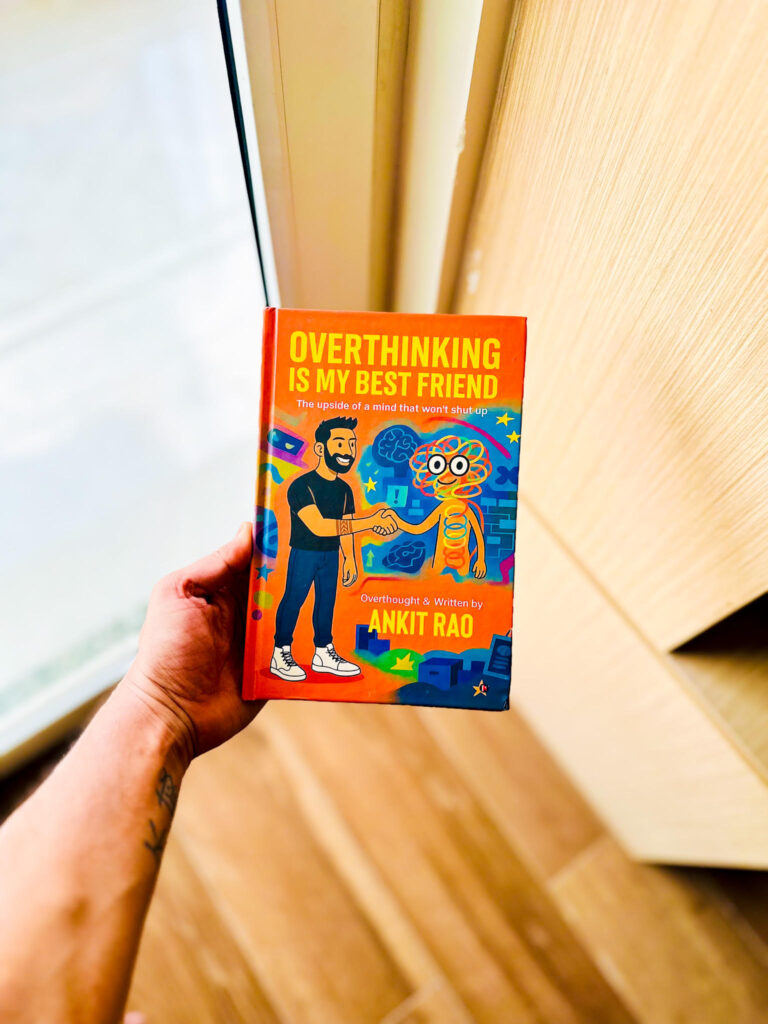Physical Address
304 North Cardinal St.
Dorchester Center, MA 02124
Physical Address
304 North Cardinal St.
Dorchester Center, MA 02124

THIS IS A NEWSLETTER TYPE REVIEW 🙂
For the author, overthinking wasn’t always the anxious kind; it often started as the calculated kind. Early in life, the author found that this habit of deep reflection, born from intense gaming, escaped the game world and began breaking down real life like it was a new level. Rejections became respawns, and big tasks were treated as boss fights. The author learned that if they couldn’t do something, it just meant they hadn’t “levelled up enough” yet.
Gaming became a form of practice and preparation. For example, Call of Duty taught anticipation and awareness, and Age of Empires was a masterclass in systems thinking and macro vision. The game didn’t end when the screen went black; it continued in the author’s mind, visualizing angles and calculating strategy. In the game world, overthinking led to better play, and in real life, it led to becoming a better thinker. The author won because they were prepared.

In professional life, this deep thinking continued. The author entered the corporate world constantly calculating and assessing how they came across, trying to stay two steps ahead of others’ opinions. This habit was rooted in a belief that things only count if they are polished, like a final exam submission.
The author found that putting structure to overthinking was key. When working at Amazon, the Leadership Principles felt like their inner monologue, turning instinct into strategy and leading to structured reflection instead of doubt.
The author now views their mind as an “internal whiteboard” or “strategy lab”—an Overthinker’s Playground. They have built “mental boxes” to store and categorize unresolved thoughts (like work themes, stress, or mistakes). When overwhelmed, the author seeks the right box to place a thought, and this act of naming and storing the thought is what provides clarity. This structure allows the author to love ambiguity and chaos, as these are the times they feel most useful.
Clarity doesn’t come from silencing thoughts but from structuring the chaos. The best thing an overthinker can do is stop trying to be like everyone else and start sharing the way they see the world. You don’t have to fix your brain; you just have to understand how it works.
Why You Should Read Overthinking Is My Best Friend
You should read Overthinking Is My Best Friend because it offers a different lens on your mental habits. The book documents the author’s journey to learn how to think better, focusing on structure, clarity, and intention. The core purpose is not to provide answers, but to help you gain awareness, hoping you find pieces of yourself reflected in the chapters. The book teaches you to see that your thoughts are not stupid, but are signals trying to help, protect, or prepare you. The author emphasizes that they would rather be too thoughtful than too dismissive and, through this narrative, the book helps you understand how much of your deep thinking capacity still serves you. Ultimately, it grants you permission to think the way you think, allowing you to find clarity in the chaos